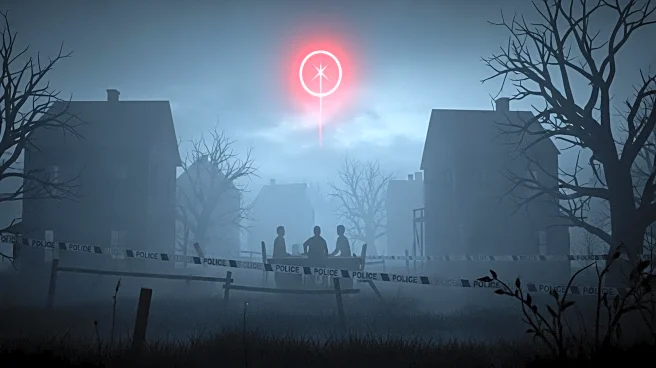What's Happening?
Silent Hill series producer Motoi Okamoto has publicly disagreed with former Konami developer Hideo Kojima's assertion that artificial intelligence (AI) will play a significant role in creating remakes
and sequels in the future. Kojima, known for his innovative approach to game design, suggested that AI could handle the repetitive aspects of game development, allowing human creators to focus on more imaginative tasks. However, Okamoto contends that AI lacks the capability to make the bold creative decisions necessary for projects like Silent Hill f, which features a unique setting in 1960s Japan and involves acclaimed horror writer Ryukishi07. Okamoto emphasized that such creative choices are beyond AI's current capabilities.
Why It's Important?
The debate between Okamoto and Kojima highlights a broader discussion within the gaming industry about the role of AI in creative processes. While AI can enhance efficiency and handle routine tasks, its ability to replace human creativity remains contentious. This discussion is particularly relevant as the industry explores new technologies to streamline production and reduce costs. The outcome of this debate could influence how future games are developed, potentially affecting job roles within the industry and the nature of creative decision-making. Stakeholders in the gaming industry, including developers and publishers, are closely watching these developments to understand how AI might reshape their workflows and creative processes.
What's Next?
As AI technology continues to advance, the gaming industry may see increased experimentation with AI-driven tools. Developers like Kojima and Glen Schofield, creator of Dead Space, advocate for AI as a supportive tool rather than a replacement for human creativity. This perspective suggests a future where AI assists in game development, improving speed and reducing costs while preserving the human element in creative decision-making. The industry will likely continue to explore the balance between AI and human creativity, with potential implications for game design, production timelines, and the overall gaming experience.









